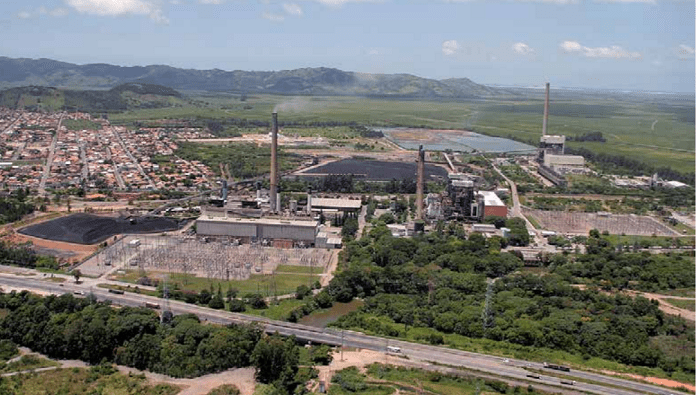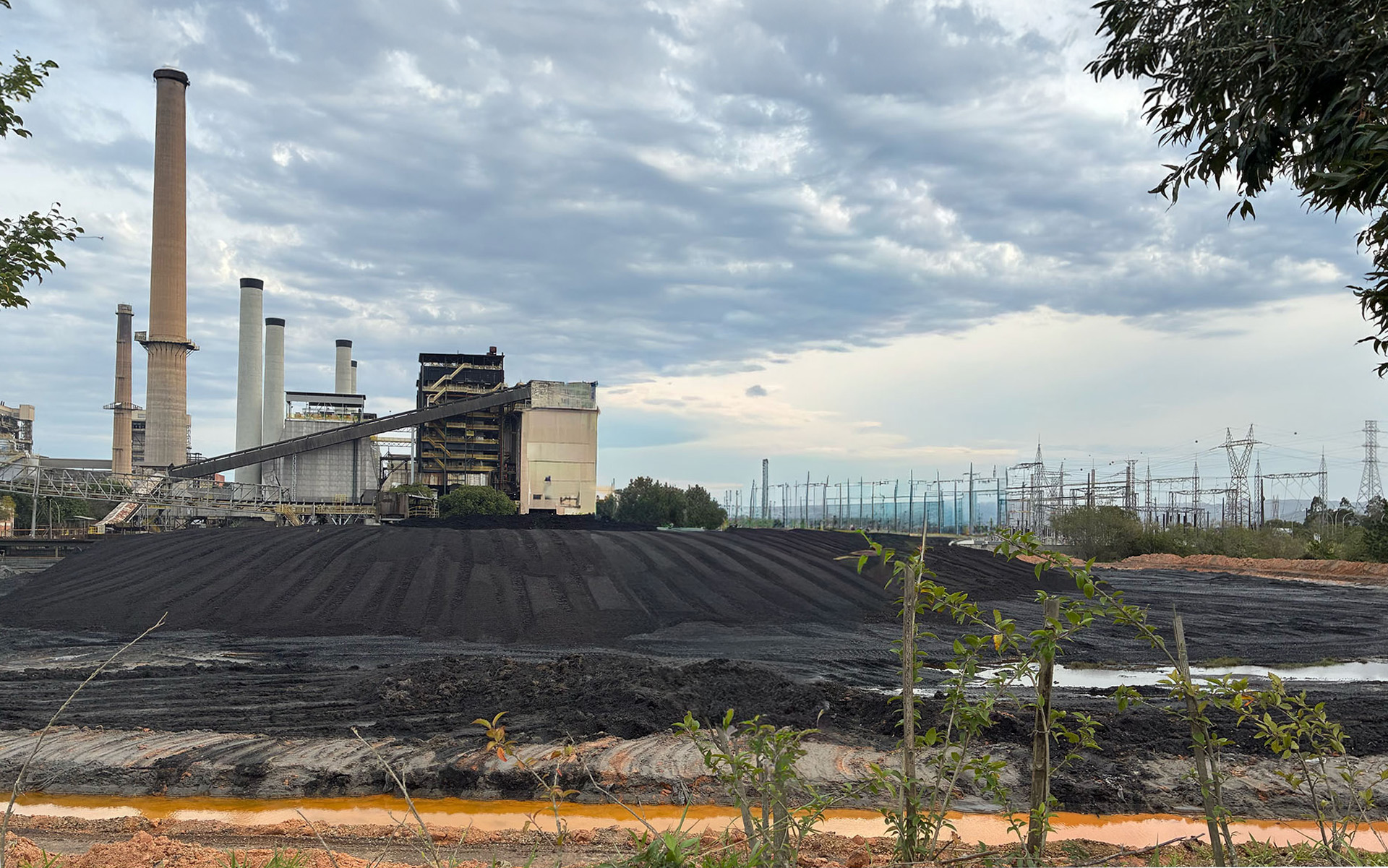The International Institute ARAYARA and the National Front of Energy Consumers (FNCE) publicly express their strongest rejection of the approval of the draft Reserve Energy Contract for the Jorge Lacerda Thermal Power Complex (CER-CTJL), under the Just Energy Transition Program (TEJ), established by Law No. 14,299 of January 5, 2022.
The contract, to be signed between Diamante Geração de Energia Ltda. and the Electric Energy Trading Chamber (CCEE), stems from Public Consultations No. 177/2024 and No. 181/2025 and was approved by MME Ordinance No. 844 of June 24, 2025, signed by the Minister of Mines and Energy, Alexandre Silveira, and set to take effect on January 1, 2026.
This Ordinance authorizes the Federal Government to allocate R$ 1.8 billion annually in subsidies for electricity generation from the polluting fossil fuel coal, extending its use until 2040 and violating commitments made under the Paris Agreement. Coal-fired power plants are the largest greenhouse gas emitters in Southern Brazil and are responsible for the largest contaminated areas and environmental liabilities from coal mining in Latin America.
A Contract That Perpetuates Climate Setbacks and Burdens Brazilian Citizens
The contract authorized by the Ministry of Mines and Energy (MME) allocates R$ 1.8 billion annually to a coal-fired thermal power complex responsible for nearly all greenhouse gas emissions from Capivari de Baixo (SC), Brazil’s largest per capita emitter. This amount, paid by consumers through electricity bills, subsidizes the purchase of coal, exempting the company from fuel costs.
The purchase price set for the Jorge Lacerda Thermal Power Complex was R$ 564.37/MWh (as of January 2025), more than 300% higher than the lowest prices for renewable sources, such as solar and wind, which average around R$ 175.66/MWh and R$ 171.20/MWh, respectively. With no operational flexibility, the minimum generation required from coal-fired plants restricts the integration of renewable energy sources into the grid.
Contractual Illegalities
In December 2024, the Federal Public Prosecutor’s Office in Santa Catarina launched an investigation into the illegal extraction of coal outside the area authorized by the National Mining Agency (ANM) and without a license from the state environmental agency (IMA), involving Diamante Geração de Energia. The allegedly irregular coal would supply the CTJL, whose operations are fully subsidized, constituting violations of environmental legislation and contractual good faith. Civil Lawsuit No. 5006590-35.2024.4.04.7204/SC is ongoing.
Violation of Climate Commitments
Article 4 of Federal Law No. 14,299/2022 establishes the “Just Energy Transition Program (TEJ),” which, according to the law itself, aims to promote a just energy transition in the coal region of Santa Catarina. In Direct Action of Unconstitutionality (ADI) No. 7095, filed with the Federal Supreme Court (STF) by ARAYARA and political parties, Technical Note No. 515/2023-MMA was submitted at the request of the STF. On this note, the Ministry of the Environment (MMA) recognizes the law’s unconstitutionality for violating Brazil’s international climate commitments under the Paris Agreement.
However, the current model disregards fundamental principles of climate and social justice:
- There is no plan for retraining or early retirement of coal sector workers;
- There is no greenhouse gas (GHG) emissions reduction targets for this fossil project;
- No commitment to clean technologies or environmental compensation;
- The Just Energy Transition Program Council, provided for by Law No. 14,299/2022 (§2, Art. 4), created by Decree No. 11,124/2022, has only met twice in 2022 and has not maintained continuous work or ensured participation from organized civil society;
- The legislation ignores CTJL’s responsibility for remediating environmental liabilities and contaminated sites in Santa Catarina’s coal region.
The True Path to a Just Energy Transition Is Being Ignored
The Ministry of Mines and Energy has ignored the true path to a just energy transition, favouring the coal industry over the rights and well-being of all Brazilian energy consumers.
The International Institute ARAYARA has actively participated throughout this process, demonstrating that coal is a source of pollution and emissions and that it is possible to plan its phase-out fairly, with special attention to affected workers. ARAYARA’s efforts included multiple technical and scientific contributions, notably:
The production of study “The Toxic Legacy of Engie – Fram – Diamante in Brazil” maps the impacts of the coal chain in 47 municipalities in Santa Catarina, including soil, river, and population contamination by heavy metals such as arsenic and manganese, presented at COP26;
Supporting political parties in filing two Direct Actions of Unconstitutionality (ADIs 7095 and 7332) before the STF against federal and state laws underpinning this contract;
Submitting consistent technical reports during MME and EPE’s public consultations (MME Nos. 177/2024 and 181/2025), all of which were ignored in favour of coal industry opinions.
A True, Fair, and Clean Energy Transition
ARAYARA and FNCE advocate that a “just energy transition” cannot be equated with extending privileges to coal-based fossil projects. A real transition must include:
- Job creation in sustainable sectors, known as green jobs;
- Protection of public health and the environment;
- Reduction of climate emissions with the neutralization of greenhouse gases;
- Justice for historically contaminated and neglected areas—especially those inhabited by Indigenous Peoples and traditional communities.
It is essential to ensure the inclusion of workers throughout the coal mining, processing, transportation, and combustion chain in the development of public policies, programs, and the allocation of financial resources toward a fair and sustainable energy transition for the region. It must go beyond merely allocating R$ 1.8 billion annually to purchase coal and keep CTJL running until 2040, perpetuating the same unsustainable model of environmental degradation and exposing populations and workers to ecological risks, pollution, and public health impacts from coal mining activities and waste.
In Light of This, ARAYARA and FNCE Demand:
- Immediate repeal of MME Ordinance No. 844 of June 24, 2025, which authorizes the CTJL contract;
- Urgent establishment of the Just Energy Transition Council as mandated by law;
- Suspension of public subsidies for coal, with redirection toward financing the energy transition, supporting renewable Energy, compulsory retirement for workers, and their retraining for green jobs by no later than 2027;
- Civil, administrative, and criminal accountability for the environmental violations linked to coal extraction and the failure to remediate contaminated areas, which IBAMA and the Ministry of Health must address.
“We will continue to fight legally, politically, and technically to stop this setback. Brazil cannot—and must not—fund its destruction with public money,” said Juliano Bueno, Technical Director of ARAYARA, PhD in Energy and expert in environmental emergencies.
International Institute ARAYARA and National Front of Energy Consumers (FNCE)
For a true, fair, and clean energy transition.
ARAYARA International Institute
National Front of Energy Consumers (FNCE)
https://consumidoresdeenergia.org/a-frente/












